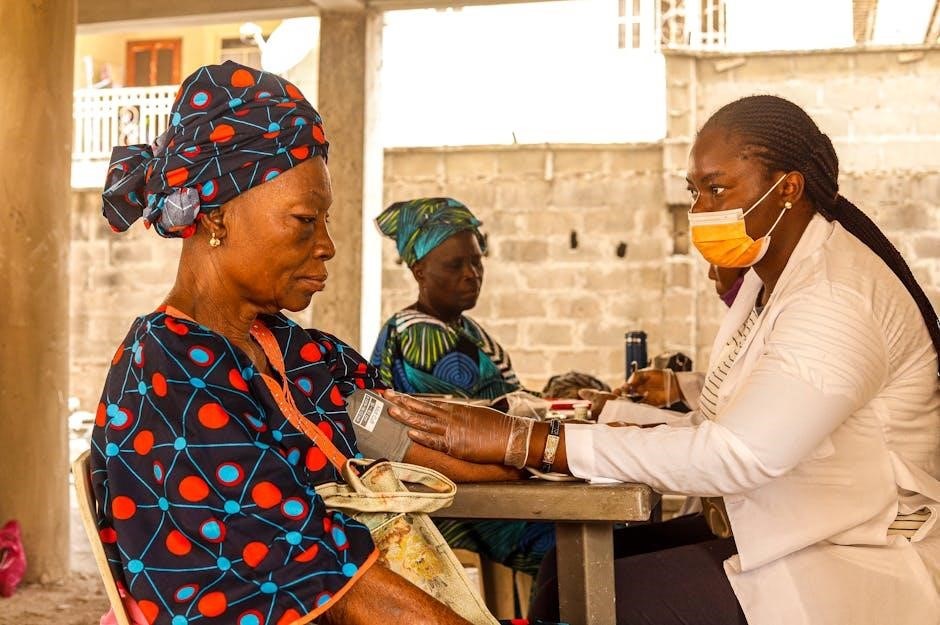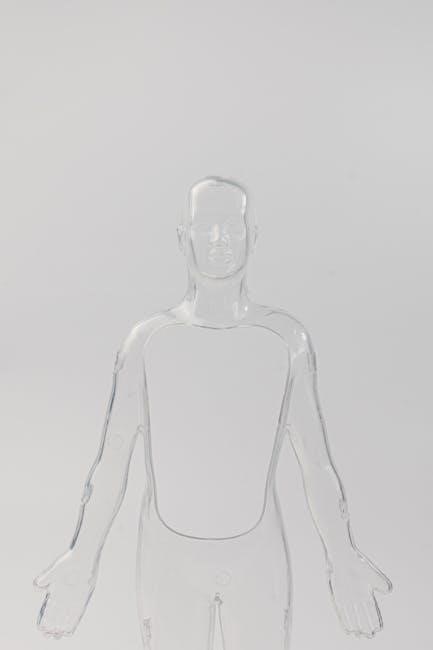Accelerated nursing programs for International Medical Graduates (IMGs) provide a pathway to transition into the nursing profession‚ leveraging their medical background for a streamlined education.
These programs are tailored to build on existing knowledge‚ offering a faster route to nursing licensure while addressing the healthcare workforce’s growing demand for skilled professionals.
With durations ranging from 18-24 months‚ these programs integrate core nursing courses‚ clinical training‚ and flexible learning formats‚ making them ideal for IMGs seeking career diversification in healthcare.
Overview of Accelerated Nursing Programs
Accelerated nursing programs are tailored for individuals with prior medical experience‚ offering a condensed curriculum focused on core nursing competencies. These programs are designed to bridge the gap between medical and nursing practices‚ enabling International Medical Graduates (IMGs) to transition smoothly into the nursing profession. Typically lasting 18-24 months‚ they combine intensive classroom instruction with hands-on clinical training‚ ensuring students gain the necessary skills to excel as nurses. The structured format allows IMGs to apply their existing medical knowledge while acquiring new nursing expertise‚ making these programs an efficient pathway to a nursing career.
Programs often feature flexible learning formats‚ including evening‚ weekend‚ and online classes‚ catering to IMGs who may juggle other commitments. Clinical placements are integral‚ providing real-world experience in diverse healthcare settings. These programs are increasingly popular among IMGs seeking to diversify their careers and contribute to the healthcare workforce as licensed nurses.
Importance of These Programs for IMGs
Accelerated nursing programs are vital for International Medical Graduates (IMGs) seeking to transition into the nursing profession. These programs offer a structured pathway to leverage their existing medical knowledge‚ enabling them to quickly acquire nursing-specific skills. By bridging the gap between their medical background and nursing practices‚ IMGs can efficiently enter the workforce as licensed nurses. This not only enhances their career opportunities but also addresses the growing demand for skilled healthcare professionals. Additionally‚ these programs provide cultural adaptation support‚ helping IMGs integrate into the healthcare system of their new country‚ making them invaluable for both personal and professional growth.
Structure of Accelerated Nursing Programs for IMGs
Accelerated nursing programs for IMGs are tailored to integrate their medical background with core nursing courses‚ offering flexible learning formats and completing in 1.5-2 years.
Duration and Completion Time
Accelerated nursing programs for IMGs typically last between 12 to 24 months‚ depending on the institution and program structure.
These programs are designed to be intensive‚ allowing students to complete their nursing education in a shorter timeframe compared to traditional programs.
Some programs are structured into six semesters‚ with classes held in the evenings‚ weekends‚ or online‚ offering flexibility for working professionals.
Completion time may vary based on prior education and clinical hours required‚ ensuring a comprehensive learning experience tailored to IMGs’ unique backgrounds.
Core Nursing Courses and Curriculum Focus
Accelerated nursing programs for IMGs emphasize core courses in nursing fundamentals‚ patient assessment‚ and clinical skills tailored to their medical background.
The curriculum focuses on bridging medical knowledge with nursing practices‚ ensuring a smooth transition into the nursing profession.
Key areas include pharmacology‚ anatomy‚ and physiology‚ alongside specialized training in gerontology‚ pediatrics‚ and critical care to prepare for diverse healthcare settings.
This structured approach ensures IMGs gain comprehensive nursing competencies while leveraging their existing medical expertise.
Learning Format: Evening‚ Weekend‚ and Online Classes
Accelerated nursing programs for IMGs often offer flexible learning formats‚ including evening‚ weekend‚ and online classes‚ to accommodate diverse schedules and commitments.
These formats allow IMGs to balance their studies with professional or personal obligations while maintaining rigorous academic and clinical training.
Online components provide accessibility‚ enabling students to complete coursework remotely‚ while hands-on clinical rotations ensure practical experience in real-world healthcare settings.
This blend of flexibility and structure supports IMGs in efficiently transitioning into the nursing profession within a condensed timeline‚ typically spanning six semesters.

Eligibility Criteria for International Medical Graduates
IMGs must meet specific educational‚ language proficiency‚ and certification requirements to enroll in accelerated nursing programs‚ ensuring readiness for rigorous academic and clinical demands.
Requirements include a medical degree‚ English proficiency tests like TOEFL or IELTS‚ and certifications such as ECFMG for international credentials.
Educational Background and Degree Requirements
International Medical Graduates (IMGs) must hold a medical degree from an accredited institution‚ typically outside the U.S. Many programs require applicants to have completed their medical education and provide transcripts.
Some accelerated nursing programs may accept applicants with a bachelor’s degree in a related field‚ while others require specific prerequisite courses in sciences like biology or chemistry.
Additionally‚ applicants must submit credentials evaluated by recognized agencies‚ such as the Educational Commission for Foreign Medical Graduates (ECFMG)‚ to validate their degrees for U.S. academic standards.
Language Proficiency and Certification Requirements
International Medical Graduates (IMGs) must demonstrate English proficiency‚ typically through TOEFL or IELTS exams‚ to ensure effective communication in nursing programs.
Additionally‚ many programs require certification from the Educational Commission for Foreign Medical Graduates (ECFMG) to validate medical credentials for U.S. academic standards.
Applicants may also need to provide proof of completing specific prerequisite courses or certifications‚ such as Basic Life Support (BLS) or CPR‚ to meet program requirements.
Meeting these language and certification criteria ensures IMGs are well-prepared for the rigors of accelerated nursing programs and clinical training.
Additional Prerequisites for Enrollment
Beyond educational and language requirements‚ IMGs may need to complete specific prerequisite courses‚ such as anatomy‚ physiology‚ and statistics‚ to qualify for accelerated nursing programs.
Some programs require a minimum GPA in these courses‚ ensuring a strong academic foundation for the rigorous curriculum ahead.
Additionally‚ applicants may need to provide proof of immunizations‚ background checks‚ and letters of recommendation to meet enrollment standards.
These prerequisites help ensure that IMGs are adequately prepared to succeed in the demanding environment of accelerated nursing education.

Clinical Opportunities and Hands-On Training
Clinical placements in accelerated nursing programs provide IMGs with hands-on experience‚ integrating their medical background into patient care‚ under supervision‚ to enhance practical skills and confidence.
Clinical Placements and Hours
Clinical placements in accelerated nursing programs for IMGs provide hands-on experience‚ typically requiring a minimum of 640 hours across various healthcare settings. These placements are embedded within specific courses‚ allowing students to apply theoretical knowledge in real-world scenarios. Programs often partner with hospitals‚ clinics‚ and community health organizations to offer diverse clinical exposures. The structured hours ensure IMGs gain practical skills in patient care‚ bridging their medical background with nursing practices. This immersive training is crucial for developing competence and confidence in the nursing profession‚ aligning with program goals of producing skilled‚ adaptable nurses.
Integration of Practical Experience into the Curriculum
Accelerated nursing programs for IMGs seamlessly integrate practical experience into the curriculum‚ ensuring a holistic education. Clinical rotations are embedded within courses‚ allowing students to apply classroom concepts directly in patient care settings. This approach enhances critical thinking‚ communication‚ and clinical decision-making skills. Additionally‚ capstone projects and case studies often bridge theory and practice‚ reinforcing learning outcomes. The integration of hands-on training with academic instruction prepares IMGs to transition smoothly into nursing roles‚ leveraging their prior medical knowledge to excel in their new profession. This balanced approach fosters both professional competence and personal growth‚ making graduates practice-ready.
Career Paths and Specializations for IMGs in Nursing
IMGs in accelerated nursing programs can pursue diverse roles‚ including family nurse practitioners‚ critical care nurses‚ and public health specialists‚ leveraging their medical expertise for specialized care.
Transitioning from Medicine to Nursing
International Medical Graduates (IMGs) transitioning to nursing bring a wealth of medical knowledge‚ enabling them to quickly adapt to patient care dynamics. Accelerated programs bridge their existing expertise with nursing skills‚ offering a streamlined path to licensure. These programs emphasize hands-on training and clinical experience‚ allowing IMGs to integrate their medical background into nursing practice seamlessly. The structured curriculum ensures a smooth transition‚ preparing them for diverse roles in healthcare. This shift not only expands their career opportunities but also enhances the healthcare workforce with their unique perspective and skills.
Specializations Available in Accelerated Programs
Accelerated nursing programs for IMGs offer diverse specializations‚ such as Family Nurse Practitioner (FNP) and Nurse Practitioner (NP) roles‚ allowing graduates to tailor their careers to specific patient populations. These programs often emphasize primary care‚ gerontology‚ or acute care‚ providing a strong foundation for advanced practice. Additionally‚ some programs include tracks for critical care nursing or pediatric specialties‚ enabling IMGs to align their expertise with high-demand areas in healthcare.
These specializations not only enhance career opportunities but also allow IMGs to apply their medical knowledge in specialized nursing roles‚ bridging gaps in healthcare delivery and improving patient outcomes.

Financial Aid and Scholarships for IMGs
Financial aid and scholarships for IMGs are available through various nursing programs‚ helping reduce tuition costs. Many universities offer specific funding opportunities for international students pursuing accelerated degrees. IMGs should explore program-specific scholarships and grants to support their education journey.
Scholarships for International Students
Several scholarships are available to support international students pursuing accelerated nursing programs. Universities and organizations offer these scholarships to help reduce financial barriers for IMGs. For instance‚ NSW Health provides scholarships for nursing and midwifery students‚ including international applicants. Additionally‚ institutions like Rutgers and Columbia offer specific funding opportunities for IMGs enrolled in their accelerated programs. These scholarships are designed to encourage diversity and support students transitioning into nursing from medical backgrounds. Applicants are encouraged to explore program-specific funding options to ease their educational journey.
Financial Assistance and Funding Options
Besides scholarships‚ IMGs can access financial assistance through federal student loans‚ private loans‚ and institutional grants. Many universities offering accelerated programs provide dedicated funding support for international students. For example‚ Florida International University’s program for foreign-educated physicians includes financial aid packages to facilitate the transition to nursing. Additionally‚ some institutions offer payment plans or employer tuition reimbursement for working professionals. These funding options help mitigate the financial burden‚ enabling IMGs to focus on their academic and professional goals in nursing. Exploring these opportunities is crucial for a smooth transition into accelerated nursing programs.

Challenges Faced by IMGs in Nursing Programs
IMGs often encounter cultural and language barriers‚ requiring additional support to adapt to the nursing profession. Transitioning from medicine to nursing also presents unique professional challenges.
Cultural and Language Barriers
International Medical Graduates (IMGs) often face significant cultural and language barriers when transitioning into accelerated nursing programs. These challenges can hinder effective communication and clinical performance. Cultural differences may lead to misunderstandings in patient care‚ while language proficiency issues can complicate academic success. Many IMGs must adapt to a new healthcare system and nursing practices‚ which can be daunting. Additionally‚ the pressure to master medical terminology and converse fluently in English adds to the stress. However‚ many programs now offer English language support and cultural orientation to help IMGs overcome these obstacles and integrate smoothly into their new roles. This assistance is crucial for their success.
Adapting to the Nursing Profession
Transitioning from medicine to nursing requires significant adjustments for International Medical Graduates (IMGs). The shift from a diagnostic-focused mindset to a patient-centered‚ holistic approach can be challenging. Emotional and technical adaptations are necessary‚ as nursing emphasizes hands-on care and interpersonal communication. IMGs must also align with new professional norms and workplace cultures‚ which may differ from their prior experiences. Despite these challenges‚ accelerated programs often provide mentorship and support to ease the transition. Many IMGs find the nursing profession deeply rewarding‚ as it offers opportunities to make a direct impact on patient well-being and foster meaningful connections in healthcare settings.
Success Stories and Case Studies
International Medical Graduates (IMGs) in accelerated nursing programs often thrive‚ transitioning into roles like Nurse Practitioners. Rutgers and Columbia University programs highlight such successful career transitions.
Lessons Learned from Successful IMGs in Nursing
Successful IMGs in accelerated nursing programs emphasize resilience‚ adaptability‚ and leveraging prior medical knowledge. Many highlight the importance of networking and seeking mentorship to navigate cultural and professional transitions.
They stress the need to embrace continuous learning and remain open to new clinical practices. Time management and self-care are crucial due to the rigorous nature of these programs.
Additionally‚ understanding the healthcare system’s cultural nuances and communication styles is vital. These lessons underscore the transformative potential of accelerated programs for IMGs pursuing nursing careers.
Examples of Thriving in Accelerated Programs
Many IMGs have successfully transitioned into nursing through accelerated programs‚ leveraging their medical expertise to excel in clinical settings. Programs like those at Rutgers and Columbia University have empowered IMGs to become skilled Nurse Practitioners‚ bridging gaps in primary care. These individuals often highlight the value of mentorship and cultural integration support provided by such programs.
Success stories include IMGs who transitioned from medicine to nursing‚ achieving advanced roles and contributing to underserved communities. Their journeys demonstrate how accelerated programs can transform careers‚ fostering growth and innovation in healthcare.
Accelerated nursing programs for IMGs are transforming healthcare by diversifying the workforce and addressing shortages. These programs promise continued growth‚ fostering innovation and inclusivity in nursing education.
Impact of Accelerated Programs on Healthcare Workforce
Accelerated nursing programs for IMGs significantly enhance the healthcare workforce by bridging skill gaps and diversifying professional backgrounds. These programs address nursing shortages‚ particularly in underserved areas‚ by preparing highly qualified professionals.
By integrating IMGs’ medical expertise into nursing‚ these programs enrich patient care with diverse perspectives‚ improving healthcare outcomes and fostering a more inclusive and skilled workforce to meet growing demands.
Final Thoughts and Recommendations
Accelerated nursing programs for IMGs offer a transformative pathway‚ enabling medical professionals to transition into nursing while leveraging their existing knowledge. These programs are a valuable resource for diversifying the healthcare workforce and addressing staffing shortages.
Prospective applicants should thoroughly research program requirements‚ seek financial aid opportunities‚ and prepare for cultural and language adjustments. Embracing these challenges can lead to fulfilling careers in nursing‚ ultimately enriching both personal and professional growth.
